A lot of people ask me how I ended up in Belgium, wondering why I would choose the sunny and warm weather of my Colombian hometown over the rainy grey skies of this tiny European country. Most people outside of Europe know very little about Belgium, often confusing it with “Brussels” (not a country) or its more popular neighbors France and the Netherlands. If you want to learn some facts about Belgium this is not the right post for you. You will learn more about Belgium by reading, but this is a far more interesting post, of what it’s like to live here.
The title can tell you I’m about to drip both good things and bad things about this country. Bear in mind when I say “horrible” things, I mean horrible in a very “first world problems” kind of way. This country is not at war, the quality of life is very good and you can accomplish great things living in this country. That doesn’t mean things can be pretty weird sometimes…
1. People treat tiny distances like they trekking across the globe
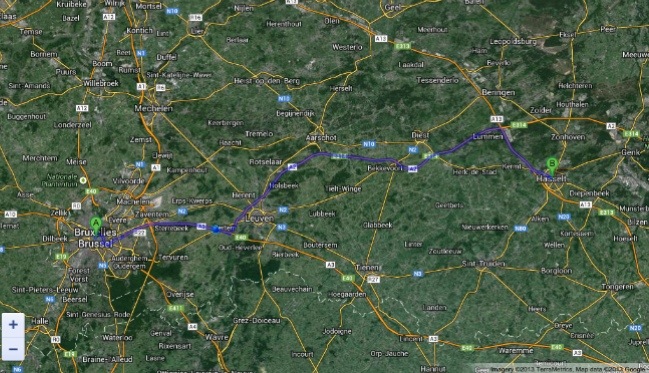 The distance here is about 80 km (49 miles). Like going to Siberia, right?
The distance here is about 80 km (49 miles). Like going to Siberia, right?
You can go across the entire country in roughly three hours, provided there is no traffic (otherwise it can take up to two weeks to get to the other side should you decide to do so during rush hour. Add another week to that if it happens to be snowing). You can move from one big city to the other in about one hour or less. My husband is from a city in the northeast of Belgium called Hasselt. For some reason most people from other cities feel going there is like going to Belarus. Maybe they are trying to do it in traffic, I don’t know, but this obsession with things being “far” in this country is absurd. And it’s contagious!
2. Yet they rather travel these far away distances to go to work than move from their village
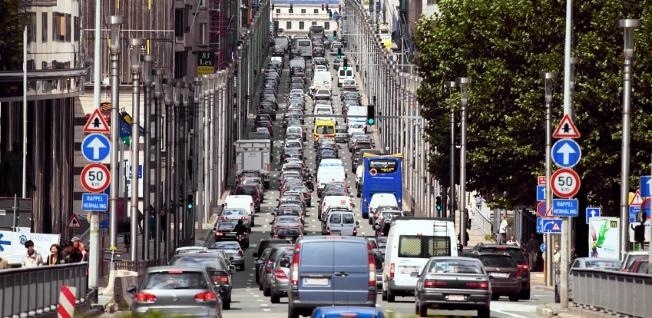 And hence the traffic looks something like this everywhere!
And hence the traffic looks something like this everywhere!
Belgium is quite a densely populated country, so much you can drive across the country and end up in a different little town every ten minutes. However, a lot of big multi-national companies that employ lots of people tend to be in the big cities (or in the periphery of those), that includes the government which is the largest employer in the country. Some companies with large manufacturing installations or distribution centers tend to be in the middle of nowhere which means a lot of people have longer commutes to work. But because Belgians like to stay very, very close to where they are from (or their in-laws are from) they rather travel 2 hours back and forth going to work than move to a location closer to work (and yet they’ll complain about visiting friends that live from 30 km further than their abodes)
3. However, if there’s a good place for so-called work-life balance, it’s this one
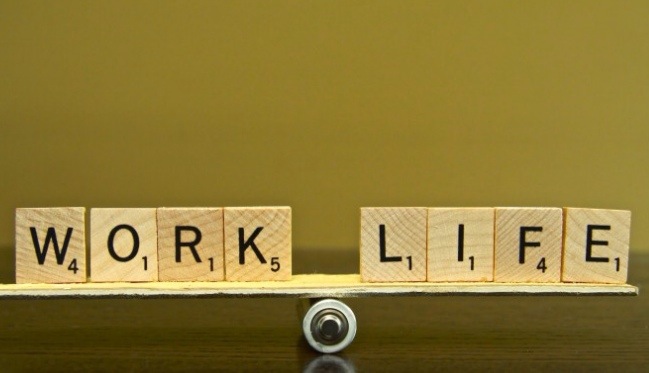 It’s even more stable than this stock photo!
It’s even more stable than this stock photo!
As a developed nation with ample resources, it is surprisingly refreshing to see how this is one of those few places in the world where you can have a semblance of a successful career while maintaining a family. Maybe because organizations have to be accommodating of employees’ desire to stay close to home (they’d have no workforce otherwise). It also helps that you have a very nice social security system and employee benefits that take care of your needs. People can get at least 20 days paid vacation which is a nice perk to have that not a lot of other countries have. You can come home at a reasonable hour, spend time with your partner, children, pets, maybe watch a movie or just go to sleep early….
4. Because chances of finding any commercial establishment open after 7:00 p.m. are grim!
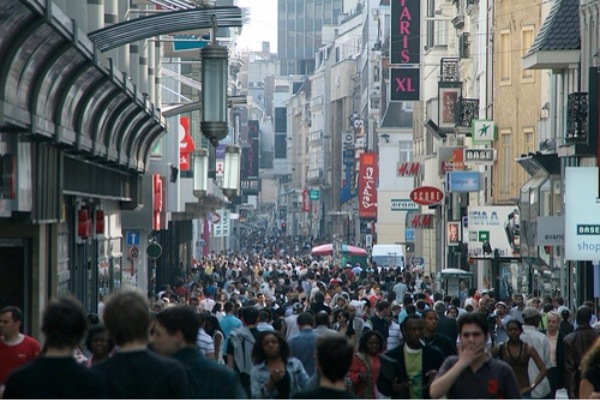 Just another Saturday shopping morning in
Just another Saturday shopping morning in China Brussels.
Say you are an employee at one of these multinational corporations and you are a responsible professional; you arrive to work at around 9:00 a.m. and you leave between 5:30 and 6:00 p.m. Say one evening after work you decide to get a present for a friend who invited you to her birthday party on Friday. Good luck with that, dude. Most stores close between 18:00 and 19:00 and unless you want to get your friend a 6 pack of Coca-Colas, some chocolates, and a pack of frozen Swedish meatballs (since the only supermarkets and IKEA are open until 8:00 p.m), then you are screwed on your weekday shopping. The only day you can do proper shopping is Saturday, or if you are lucky, you may live close to one of those outdoor shopping areas where they open Sundays (an extremely rare occurrence in the big cities). As you can imagine, most places are impossibly full during the weekend. It gets worse during the sales periods of January and July. Oh, and did you have a bad case of the Mondays and decided to not cook and eat out? Tough luck my friends as most restaurants are closed that day!
5. At least the food is incredibly good and incredibly affordable
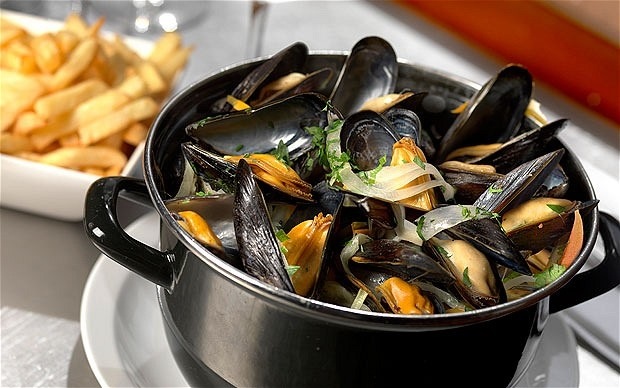 One of the best local dishes, mussels (alone or in white wine sauce) with fries
One of the best local dishes, mussels (alone or in white wine sauce) with fries
Fast-food chains, although they exist, can feel sort of pointless. The culinary offerings in Belgium are extensive, delicious and quite affordable. As a mother of a toddler, I can see the value of fast food chains in that they provide entertainment for my kid rather than nutrition. In other words, those places have a playground. But is I want to have some delicious fast food, all I have to do is go to my neighborhood’s “frietkot” (a little shop usually that sells fries and other fried savory treats) or one of the many “doner kebab” places available in Belgium, which incidentally also serves fries and other delicious fried savory treats. But the regular, slow food, sit-down-and-wait-for-your-meal places for all budget is where this country shines in the food department!
6. Keep in mind, customer service is optional
 Dealing with, say, your internet network provider can cause extreme demonic possessions.
Dealing with, say, your internet network provider can cause extreme demonic possessions.
Maybe you had one of the best meals of your life in a medium-priced restaurant but the appalling customer service you may have received will be enough to dampen the experience. If you ask expats what their biggest complaint is about Belgium, customer service will be at the top of the list. This is not just in the restaurant business. This is in every industry with a customer service operation: restaurants, stores, hospitals, government institutions (of course, no surprise there), public libraries, hotels…. There are obviously exceptions, but generally speaking, service gets better the more you pay for it. For restaurants, I could sort of understand it, as there is no “tipping habit” since servers get a somewhat decent salary, hence there is really no incentive in being nicer, really. For the rest, there is really no excuse…
7. People grow up multilingual
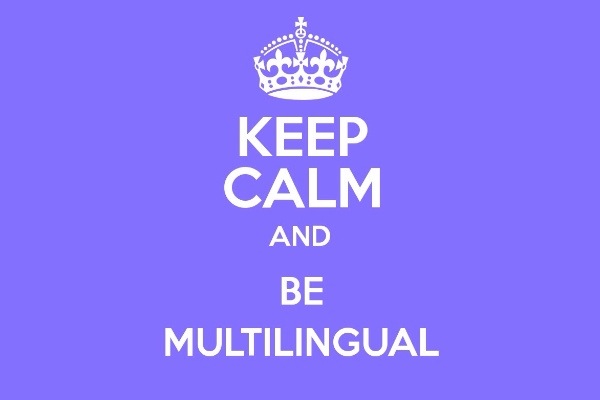 Natuurlijk! / Bien sur!
Natuurlijk! / Bien sur!
There are three official languages in Belgium: Flemish (a variation of Dutch), French, and German, the latter is only native to a very small part of the population. The majority of the Belgian population is Flemish-speaking, most of them live in a region called Flanders. The French speakers live in a region called Wallonia. The Brussels capital region is officially bilingual, but in practice, Frenchnis the more widely used language. What this means for the people of Belgium is no matter where you are raised, your school will teach you the other language, maybe even a third. In university you have options to learn another language, like English or Spanish, and because Belgium (more specifically Brussels) in the home of the European Union and NATO, there are a lot of chances for you to use all these languages. If you live in Flanders or have access to the Flemish channels, shows are usually subtitled, which means you are exposed to the original language of the program.
8. Half the time, you don’t know what language to speak
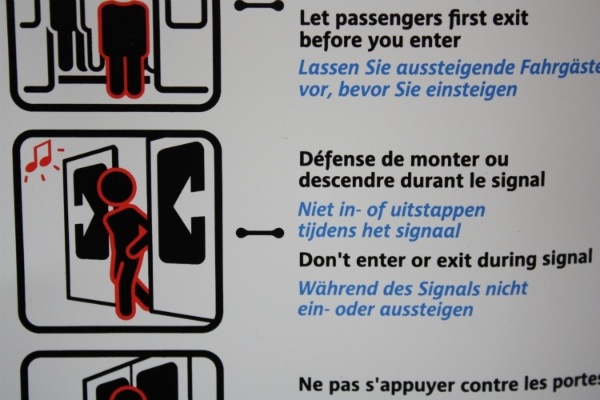 If it wasn’t for the English text here, one might think “Belgian” is a complicated language!
If it wasn’t for the English text here, one might think “Belgian” is a complicated language!
As soon as you cross the border to another region, it’s like a different country altogether. The street signs change and the overall demeanor of people changes with it. The question many raise is how come this country is holding together? There’s a whole language debate because some areas of the country that geographically belong to one region have seen an influx of people (it was a gradual influx, nothing from one day to the other) who speak the language of the other region. What this has caused is a change in these cities’ infrastructure to accommodate these people as well as the electoral process and thus, raise some sensibilities. The point of this whole thing is, as an expat that happens to speak one of the local languages, stick to English to start with…
9. High quality, universal healthcare
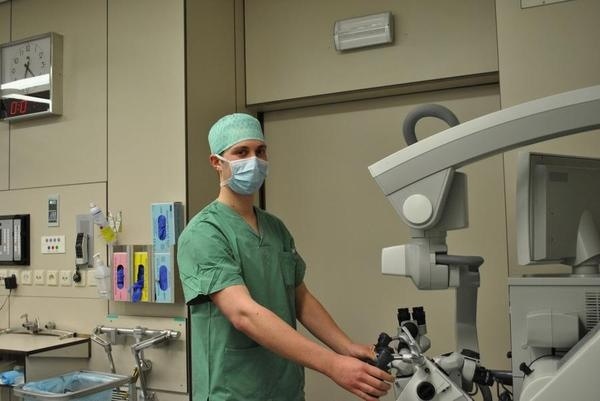 Dr. Bart is ready for your closeup!
Dr. Bart is ready for your closeup!
Yep, with the whole Obamacare debate going on in the US, you gotta be grateful about not going bankrupt because you get sick, or simply not being able to afford treatment because you have a pre-existing condition. You can choose any doctor you want to go to, have high-quality physicians and facilities and on average 70% of your investment is reimbursed. The total bill for when I had my son was about 5000€ which included a c-section, as well as the required 7 days, stay after such procedure (it’s 5 days for natural delivery). On top of that, there were a couple of pediatrician as well as physiotherapy, which are pretty much part of the standard package. In all fairness, a part of all that was covered by the supplemental insurance my employer-provided, but the standard government social security plan is still super affordable.
10. That’s not suitable for the impatient and/or paranoid
 Guillaume here ponders whether that mole is something to worry about…
Guillaume here ponders whether that mole is something to worry about…
Here’s a story to illustrate this point… On a routine visit to my doctor, the scan she was performing showed something “odd”. she literally said, “Well, this is odd”. She added, “I’m almost sure this is not an issue, but just to be sure, I would like to have another test with a radiologist.” In my head, of course, I was already dying of cancer and the process of finding out it was in fact, nothing, did not help my paranoia. I called the radiologist to make an appointment and the secretary kindly informed me it was going to be 3 weeks before the doctor could see me. What? But what if I’m dying? Nope, no chance. Maybe these people have a 6th sense that tells them it’s nothing, but it’s horrible for the patient nonetheless. You could say maybe there aren’t enough medical service providers for the high patient demand, but if you think about it, the whole thing is a combination of points 3, 4, and 6.
My relationship with this country is sort of a love-hate relationship as you can see. My two favorite gentlemen in the whole world were born here, so Belgium will always have a very special place in my heart, but just like with those two gentlemen, the relationship is not always smooth.
How is it for you my fellow readers in Belgium? And for those of you in other countries, how do these points compare?




Even the negative points sound awesome
I loved, loved, loved reading this! I lived in Belgium for a year during my study exchange (in Antwerp) and this article has brought me so many good memories 🙂
When I first arrived I thought it was just crazy that all shops closed at 6pm and I didn’t understand how people could live a live that way. Several years and some other countries later finally got used to it and I think it is a really good way to improve work-life balance. In fact, I don’t think I would feel comfortable if I went back to Spain and had to work from 9 to 9, even with a break in between.
And yes, distances seemed huge (but this was normal to me as I come from Tenerife, also a small island, and going from one point of the island to another feels like going till the end of the world). I once went by train to Luxembourg and it felt like an endless trip because we were almost for hours on the train. Same thing last summer when I went to Knokke-Heist by train.
And yes, the food is amazing! I miss my ‘frietjes met andalouse saus’ 🙂
Nice article and interesting to read how you perceive my country. It is funny, as a Belgian living near Berlin, I feel I made the same experiences as you made in my home country.
First of all I think it is very difficult to find German friends or it takes a really long time. Don´t get me wrong, I do have very good German friends but I took quite a while.
For me the Germans have their very steady circles of friends and it is difficult to get into it. I notice this even with my daughter who was born here and who continues to frequent her own small circle of friends and I always wonder why she does not have other nationalities among her friends. Berlin is so international and there are some many young people living here now from Spain, France, Canada etc.
For me, when my children were younger it was also hard to get in touch with other German parents. If I had to collect the children at a German family, I never came further than their doorstep, at most of them at least. I thought, in Belgium they would at least ask if you want a coffee and have some small talk.
In most of the shops, they will not recognize you, even if you are a frequent customer. There is this grocery shop in my neighborhood for instance. I go there since ten years because they have good products but no chatting in the shop and not just one sign that they recognize me and this bothers me sometimes but I got used to it somehow. Berlin can be very anonymously.
In Berlin it is also very unusual to start a conversation with a complete stranger, like it is done in New York for instance. If you attempt to chat, you feel immediately that they do not feel comfortable with it.
As for the Germans I am befriended with, I like them very much, but I would never ring at their door without making an appointment. That is just not done. It´s is really funny to read how you see the Belgians, because I always thought thought that we are a bit more spontaneous than the Germans:)
I like to live in Germany and Berlin is one of the greatest cities to live in but it may be hard at the beginning to find German friends and your first friends will probably be other foreigners.
But once you have your German friends, you will have them for life. Just take you time.
Nice article. Flemish is not a variation of Dutch though. Flemish does not exist. It’s not a language. Flemish people speak Dutch. Just like Americans speak English, they don’t speak American. Austrian people speak German, they don’t speak Austrian.
I will not blame you for this, Flemish people constantly pretend they speak Flemish.
Can’t wait to see how that comment goes over. I’m American, my wife is Belgian, and as sick as I am of people not speaking English here I’ve been learning Dutch.
As a linguist, I can see that Flemish is only a dialect, but as a sociologist, I realize the importance of national identity. Even within tiny Belgium, there are several dialects, and in the same way someone from the Bronx speaks a different language than someone from Brooklyn,they see these dialects as separate languages.
It’s bad enough the French have overrun the country, I’ll call Flemish a language.
You nailed it!
About 10: Ever tried to get health care appointments in The Netherlands?
Every day I’m 4h underway for my job. 15km by car and 102km by train. Most people I know say how can you keep going like that. For me it’s ok they pay a lot more in Bxl. So for my work 115km is ok, but for a visit further to the west I find it crazy. 200km for going to see the Northsea, no way (Belgian coast isn’t that beautiful anyway, and expensive too) I’m in a boardgameclub and also there I go no further then 25km. Maybe it has something to do with my daily travelling. You don’t get in the mood to travel distances in the weekends also. Hey it’s weekend. Travelling sounds like work.
And why should I move to Brussels ? In my own village I have my friends, my hobbies, my family. The costs for travelling are paid by the employer. If he doesn’t he will have a hard time to keep all these employees in his company. Going to live in the city or the surrounding villages is very expensive, so not much chance for that.
Officially Flemisch isn’t a language, it isn’t a dialect either. It’s between. Standard Flemish, officially called south-dutch has some differences with what we call Hollands. About French it’s a difficult relationship. I recognize the point that they have overrun some villages around Brussels. I feel like if you gonna live somewhere you speak the local language. Simply out of respect. They didn’t which makes me sad and angry the same time. Angry because they have in arrogant attitude towards locals and they find their languages superior. Sad because this helps populist separatist parties to get high scores in elections. These parties are slowly dividing our country into two countries.
Point 4 and 10 are related to 3. work – life balance is indeed important for us. We don’t expect from people they work during evenings. We put our self in their place. Would we want to work in shop at a low salary during the evening or on sunday. I don’t thinks so. Same for restaurants on Mondays. These people must work on sunday and during evenings, for our pleasure. Going to a restaurant in the first place is quality time. So one day isn’t asked that much, i think. We only expect from some jobs they are fulfilled 24/24, jobs like fireman, nurse, prison officer, cop, doctors in the emergency department, … indeed jobs in services who must run 24/24.
Excellente article! I stumbled upon it by mere accident, and it actually reminded me about a piece I wrote in my blog long ago:
http://luisurquiza.blogspot.com/2007/04/having-lived-bit-more-than-4-years-in.html
Saludos de Peru!
Lucho
Belgium is the greatest country of all because it has the kindest and coolest people( and i am not Belgian)
If u don’t like a country u move 🙂
You forgot to mention that yes for some people that want 9 to 5 job it’s a good country. For anyone else, who want to have more than average (like their own business), look somewhere else because you will drown in taxes and red tape at the start. Most businesses there are 50 to 150 years old and have the market by the throat.
I have lived in Belgium since 1994 (27 years) and I can honestly say that living in Belgium is like living in an ‘open prison’ because all you do is stay at home or go to the supermarket. There is no social life here for foreigners as nobody ever speaks to you. Sometimes you have to go to the townhall for official business and you are treated like an object, not like a human-being. I want to leave as soon as possible.